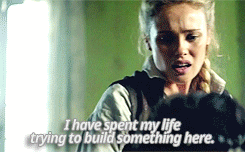Here on the Fandomentals, there’s a few things we tend towards: frenetic analyses, geekery, an unabashed love of media that takes grimdark to task… Yet there’s something else we seem to have a penchant for, and up until now, our best way of adequately explaining it has been to say “this character is a Martell.”
I tried to detail what that meant when I said this of the Skywalkers in The Force Awakens:
The “Martells” are from George R.R. Martin’s A Song of Ice and Fire, and their family drama serves as a major subplot in the most recent two books. A lot of people focus on their “plot function,” or write them off completely because “too many new players” were introduced late in the game, but I instead like to focus on their Shakespearean flaws, their internalized guilt, and their clear love for one another, despite years of shitty communication and hurt.
Too add, the Martells are the ruling family in Dorne (the real Dorne), and as a result have a deeply ingrained sense of authority. Arianne Martell in particular tends to use her political position of princess and heir as an excuse to hide from interpersonal issues. Why talk to her father and risk being told she’s unworthy of his love, when she could plot light-treason behind his back and spin it to be about the betterment of Dorne?
And woe betide anyone dating a Martell who thinks that they would ever be prioritized over the job.
“Coin?” her mother had screamed. “He is your son. What sort of father uses his own flesh and blood to pay his debts?”
“The princely sort,” Doran Martell had answered.
I’m not suggesting Doran should get any father-of-the-year trophies, but what makes the Martells incredibly rewarding characters is that they truly do need to consider political implications of everything, and it’s the intersection of those implications with their personal values and wishes that puts them in fascinating, grey dilemmas. When does the “personal” become “political”?
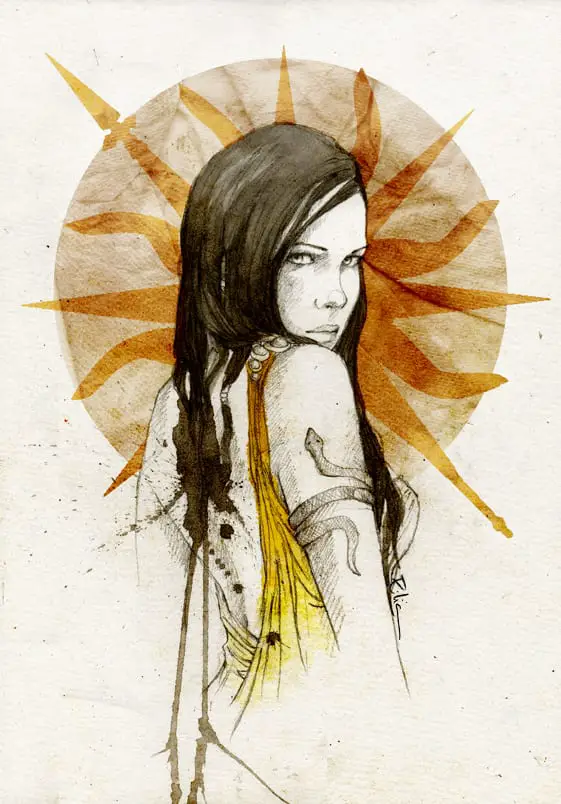
What’s more is that in case of Doran and Arianne, they have absolutely tragic similarities stemming from their tendency to avoid interpersonal conflict, and thus ironically misunderstand each other due to their shared inability to communicate their feelings openly.
This shouldn’t need stating, but Arianne is the main character of George R.R. Martin’s Dornish theater. Not her dad, the actual ruler of Dorne, or her uncle, or her uncle’s murderous paramour (Game of Thrones…what are you doing?). Just a princess with unquestionable agency, a refusal to be infantilized, internalized guilt over not measuring up to standards, self-deprecation, difficulty in her romantic relationships thanks to her commitment to her job, and the uncanny ability to create more conflict by trying to avoid it.
In short, she is a Dutiful Princess.
The remarkable thing? Much like there are Asami Satos springing up on every street corner these days, there are tons of Dutiful Princesses in media. Once you get used to thinking about these characteristics, you won’t be able to unsee them.
Princess Leia certainly fits this trope, as eluded to in the previously quoted article. Yet it’s not just her guilt and familial behavior on display in The Force Awakens that solidifies this reading. It’s how in The Empire Strikes Back, when Han threatens to leave ~for real this time~ (Han, baby, it’s been 3 years and you’re a commander; the flight-risk vibe isn’t going to work for you), Leia’s only protest is that the “Alliance” needs him.

Actually, that movie is quite a good case study to see a Dutiful Princess actively trying to create emotional distance, because feelings are scary. On a meta-level, even Carrie Fisher seemed to be on the same page:
“If Harrison was unable to see that I had feelings for him (at least five, but sometimes as many as seven) then he wasn’t as smart as I thought he was” —Carrie Fisher, The Princess Diarist
Still, one needs look no further than Adventure Time for the best example of a Dutiful Princess that isn’t Arianne Martell. Princess Bubblegum exhibits an absolutely terrifying sense of authority, often turning towards extreme and morally questionable means if she believes the ends are for the best of her Candy Kingdom. She spies because she’s protecting them, clearly.
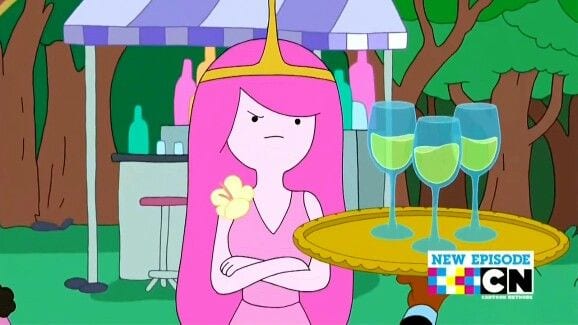
But then we also see the cost this had on her relationships, and how her duty tunnel-vision resulted in years of not being able to openly communicate her feelings. Like…thousands of years.
“I tried. I really, really tried. I just…I thought if I shut everything out and just focused on work, it would all be okay. All I managed to do was push everyone away. I pushed you away. I’m sorry Marceline. I’ve been a real dinger to you.”

And while not absolutely, 100% canon, the comic Marceline Gone Adrift depicts Princess Bubblegum going through just about every step required to be a Dutiful Princess: she makes a difficult decision for the greater good at great personal cost, angsts over this choice and beats herself up, and finally makes the determination that she is the only one who can fix the situation. Plus we’re treated to flashbacks showing her hiding in her work, just like she confessed to Marceline.
Heck, Season 7 even gave Princess Bubblegum a brother she feels unquestionable love and responsibility towards, even though we get the impression they don’t spend a whole lot of time hanging out. Sure, it’s thin compared to the complicated familial dynamics most Dutiful Princesses deal with, but so long as there’s guilt and communication difficulties, she’s in the club.
Familial difficulties do go a long way in identifying Dutiful Princesses, however. There is a strong case that can be made for Elsa and Anna from Frozen, even if the former outright bolted from her duties. (People *were* calling for her head, in fairness.)
It’s true that these sisters have completely incomprehensible authority in Arendelle, but there is a deep and unbreakable affection between them, even at times defying logic. There’s also a good decade of poor communication, and we see Anna put the onus on herself to fix the eternal winter over and over. A flawed execution? Absolutely. But there is no denying that these are Dutiful Princesses, especially between Elsa’s self-deprecation and Anna’s steadfast commitment to her sister.

It should be pointed out, of course, that not every princess is necessarily dutiful, or even has a title that means anything on a political level.
In the case of most Disney movies, the “princesses” could be nothing more than some girl who took a nap in the right place at the right time, and ended up the consort to a prince. Yet the title should at least be a signal to perk up and start thinking about this trope.
Is Zelda a dutiful princess? Well she certainly had a whole lot of guilt during the events of Ocarina of Time, and felt such a sense of personal responsibility that she spent 7 years training as a ninja to try and be able to battle against the forces of evil. And I’ve already made a case for the Deku Princess of Majora’s Mask.
However this is where the trope goes from good to great. Because while not all princesses fit into this mold, being a princess is also not an absolute requirement to be a Dutiful Princess. In fact…one could just be:
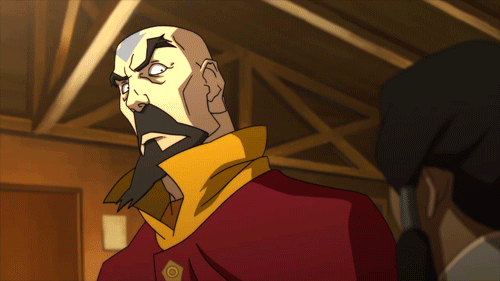
That’s right! Dutiful Princess Tenzin of The Legend of Korra is one of my favorite examples. The guy has a deeply rooted sense of authority thanks to being the only airbending master (and thus the leader of the Air Nation). Sadly, he has such crippling guilt over not being as spiritual as his father that he’s hampered his own ability to serve as a guide to the Avatar. He’s also got such a rosy view of his father that Arianne Martell would tell him to cool it, the guy could have gone to a few more high school plays.
As for communication issues, we see Tenzin and his siblings first hash it out nearly two decades after their father’s death, when they’re in their 50s and 60s.
And like any good Dutiful Princess, Tenzin’s siblings are hardly free of the trope, too. Because sharing family traits is fun! His brother Bumi in particular inherited the guilt, thanks to his nonbender status.

In fact, Legend of Korra gives us plenty of Dutiful Princess potentials, including none other than its unsung hero, Lin Beifong. Her relationship with her mother Toph is tragic, what with their complete lack of communication for twenty years, the way Lin is still so obviously desperate for her approval, the way Toph tries to pretend she doesn’t care about Lin cutting her out, and the pure, unfiltered Beifong sass.
Lin: Once we save Su, you and I are finished.
Toph: [voice breaking] If that’s your decision and it makes you happy, then fine.
That’s not the sass. That’s the angst that will leave you debilitated for weeks.
We’ve also got a Dutiful Princess in the other children’s cartoon we gush about, Steven Universe. Here, despite not being in a position of true authority, it’s the internalized guilt and self-deprecation that push Amethyst over the edge into fulfilling the trope.
The thing is, her guilt is over her very existence, and though it is so deeply felt she considers it to be her “entire existence”, neither Pearl nor Garnet knows about it. This rivals Princess Bubblegum not saying “sorry” to Marceline for a millennia or so.

As icing on the cake, Amethyst very consciously manipulates her public image—a tell-tale sign of a Dutiful Princess since it allows them to hide their emotions under a more collected, or indifferent, or care-free persona. It’s Princess Leia speaking with utter dignity about Grand Moff Tarkin’s “foul stench” before completely losing her shit once Alderaan is threatened, or Bumi hiding his inner pain under joke after joke. If Amethyst pretends that she can roll with any punch and doesn’t truly care about how others view her, then she doesn’t have to talk about the fact that underneath it all she’s in horrible, nonstop pain.

Finally, there’s the brand of Dutiful Princesses that make the cut simply because they have a parent or child with tragic similarities.
Though Gilmore Girls thought it was giving that to us with Rory and Lorelai, they actually succeeded with Lorelai and Emily. We see time and time again the way these two women hurt each other as no one else can, and the way that they are both touched beyond explanation in the moments they find a mutual understanding. There’s a love there, but it’s complicated by shared flaws, such as a tendency to take things personally, the ability to hold a grudge, and inflexibility. The result is almost always explosive, often catastrophic, and Lorelai’s guilt over cutting out her parents to have Rory/anger at even feeling guilt colors the entirety of the show.
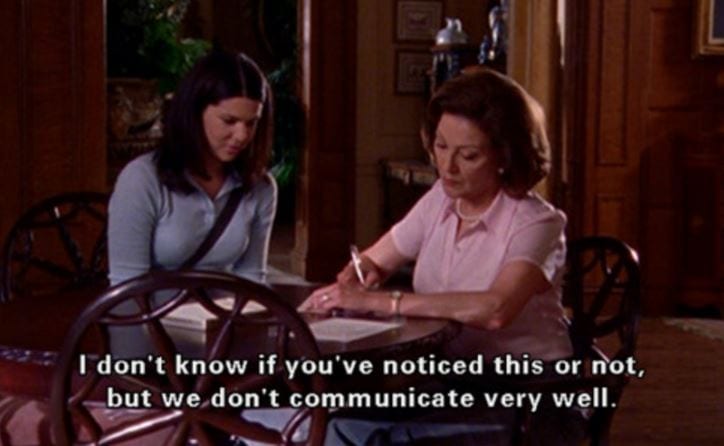
Well done, you beautiful, Dutiful Princesses. Well done.
It’s the inherently personal struggles of a Dutiful Princess that keep the trope fresh. More often than not, they are fighting with themselves, or burying everything so deeply that it has to bubble up in an inherently interesting way.
The good news? There seems to be no dearth of them. Start with the self-deprecation and end with the ingrained sense of authority; odds are there’s Dutiful Princesses or two living among your faves.
